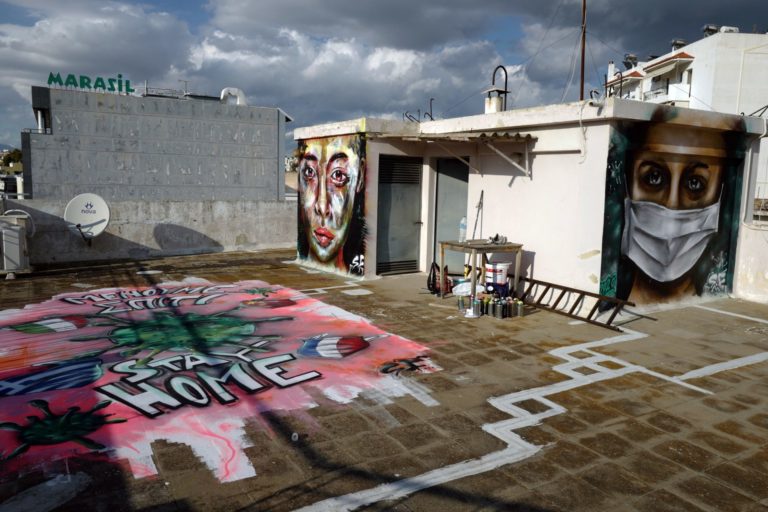There are 743 coronavirus cases in Greece following the arrival of Greek nationals repatriated from Spain who tested positive to coronavirus. Greek Civil Portection Minister Nikos Hardalias said Tuesday that 21 of the 263 passengers from Barcelona and Madrid tested positive.
“A health bomb was ready to go off, spreading the disease in our country, despite all the measures and sacrifices carried out to prevent the worst from happening,” Mr Hardalias said. “Our decision to isolate those returning to Greece was based on specific protocols that are followed by all other countries as well where coronavirus has spread. We noticed that most infections occurred in cities in northern Spain (…), and we proceed to isolate all those passengers.”
Infectious Disease spokesperson Sotiris Tsiodras appeared cautiously optimistic in his daily briefing, noting that the graph of the disease’s development in Greece “has not exponentially increased, but we have to wait to say it with confidence”.
He added that young people are not immune from death by the virus, and that humans have not yet developed immunity to it.
Greece currently has 20 deaths as a result of the virus and there are 134 patients hospitalised of whom 45 are in Intensive Care Units. The average age of the patients is 68 years, and 60 per cent of patients are men whereas the average age of those who died from the virus was 75 years.
Mr Tsiodras noted some atypical symptoms in those who experienced mild forms of the disease, including diarrhea, and the loss of the sense of smell or taste.
READ MORE: Sydney-born immunologist Sotiris Tsiodras, the ‘voice’ of coronavirus in Greece

Permits to leave home
Mr Hardalias said that while the majority of Greeks understand the necessity of restrictive measures and follow curfew instructions, with some 1.3 million SMS requests to leave home. Despite the high volume of messages, there was a high percentage of citizens who did not complete the process.
Migrant camps
EU Home Affairs Commissioner Ylva Johansson told Reuters that Athens refused to move the migrants in overcrowded camps to the Greek mainland. “We are working together with the Greek government and the Greek authorities to agree on an emergency plan to help reduce the risk as much as possible in the overcrowded hotspots on the islands,” she said, pointing to 42,000 people at the camps.
Greece receives insufficient EU help to care for the people in the camps, however the EU has agreed to relocate 1,600 unaccompanied minors currently being held in the facilities over the coming weeks.
New York-based Human Rights Watch is one of the groups critical of the situation, viewed as a ticking time bomb should coronavirus spread in the camps. It released a statement on Tuesday (Greek time), which points to the vulnerable groups in migrant camps: “Thousands of people, including older people, those with chronic diseases, children… pregnant women, new mothers, and people with disabilities, are trapped in dangerously overcrowded, deplorable conditions on the islands amid the Covid-19 pandemic. Forcing asylum seekers to remain in conditions that violate their rights and are harmful to their well-being, health, and dignity cannot be justified on grounds of public health.”
READ MORE: Greece presents 10-bln-euro coronavirus-fighting fund and shuts down hotels
Pets and strays
Government permits to leave home include a category for dog walking. The Panhellenic Animal Welfare Society released a statement that feeding strays was included in the B6 category of requests to leave home. Vets are open to pet owners for emergencies and to perform surgeries, however not for ordinary vaccinations.
Bank withdrawals
The Hellenic Bank Association (HBA) introduced measures to limit contact at branches as well as limit contact to hard cash. Bank withdrawals of up to 400 euros in cash need to be done through ATM machines and not through tellers. Deposits to bank accounts of up to 1,000 euros will also be handled by ATMs. Tellers no longer will accept the payment of utilities or cash to third parties and these now need to be carried out online.
There are no capital controls, and customers will be able to withdraw any amounts they wish from their bank accounts, according to these measures.









